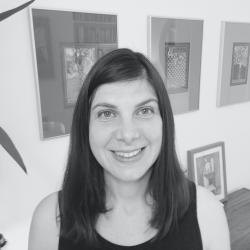Job Titles

Department of Archaeology
Dr Renshaw’s work is unique in combining forensic science with archaeology and ethnography to explore the deep connections that exist around sites of traumatic deaths related to war and/or political violence.
Her research interests on the role of archaeology in post-conflict investigations and the relationship between human remains and traumatic memory closely aligns with on-going and planned research by the
Cambridge Heritage Research Centre (CHRC). She has a strong track record of working collaboratively with scholars throughout the social sciences and humanities to make scientific approaches accessible and legible, and enable deeper reflection and scrutiny.
Dr Renshaw’s commitment to applying her research in practice also closely aligns with the CHRC’s mission, she was an assistant archaeologist with the United Nation’s International Criminal Tribunal for the Former Yugoslavia, investigating war crimes against civilians in Kosovo.
She has carried out extensive fieldwork in communities in rural Spain assisting in exhumations of mass and unmarked graves of civilian victims of the Spanish Civil War. She has also conducted ethnographic fieldwork
with these communities to understand the impact of the exhumations on repressed memory and intergenerational trauma. This year, she is participating in an ongoing Civil War investigation in the Castile La
Manch region of Spain.
She has researched public understandings of forensic science and archaeology, conducting an in-depth ethnography with families and descendants of WWI war dead from the Battle of Fromelles in Northern
France as they experienced the exhumation and reburial of their relatives. She is also a member of CRICC which is the forensic archaeology and anthropology group responsible for the recovery and identification of
US military casualties from WWI and WWII sites in Europe. She will be participating in their recovery operations in Germany and Southern Europe this year.
She has researched the phenomenon of community-led or citizen-led investigations into war and human rights violations, most recently in the project ‘Citizen Forensics: Materializing the Dead from Grave to
Gene’, with a residential meeting and network supported by the Independent Social Research Foundation and hosted by the Max Planck Institute, Berlin. Resulting from this she has co-authored and co-convened a number of chapters, conference papers and conference panels of the politics and ethics of DNA testing war casualties, and the links between genetics, heritage, and memory more broadly.
Dr Renshaw’s work on the recovery and commemoration of war dead also focuses on marginalised and under-represented war dead. In 2016, she organized a symposium on the recovery and commemoration of war dead in post-colonial contexts at Kingston University, and edited a journal special issue on this theme in 2017.
Her current research project in collaboration with the University of Chester is called ‘Filling the Void: Tracing Post-Conflict Exhumations in Britain, 1919-1969’ and concerns the lost history of post and inter-war
exhumation of war graves located within the UK. So far, the project has created an online database for citizen scholars and amateur historians to contribute their knowledge of local war graves, to bring into
conjunction with academic studies and the archives of the Commonwealth War Grave Commission. Dr Renshaw has a proven commitment to public engagement and the presentation of forensic science in an accessible and interdisciplinary way. She has presented her work at public facing events and venues such as the Imperial War Museum and the Wiener Holocaust library.

Postal Address:
Department of Archaeology
Downing Street
CB2 3DZ Cambridge
Information provided by:



© 2024 University of Cambridge